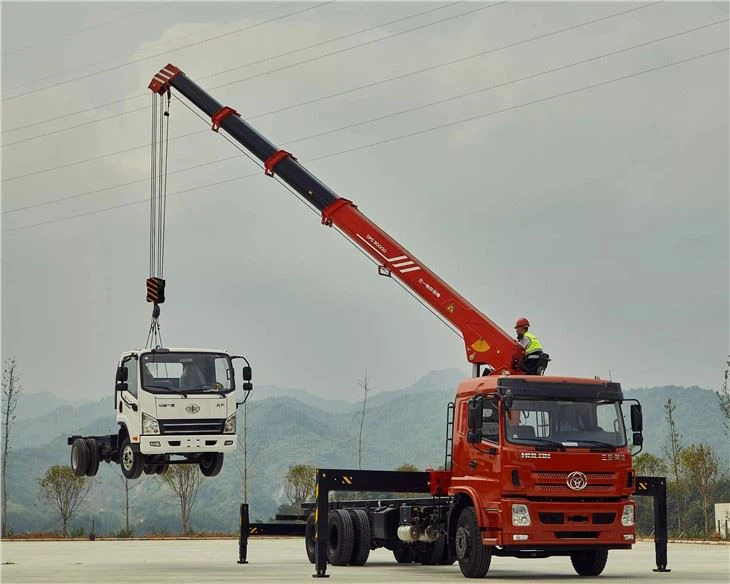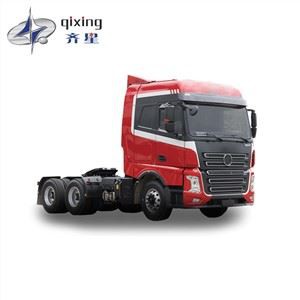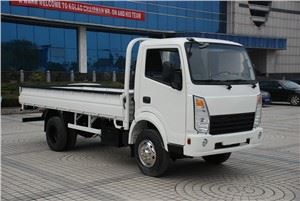Everything You Need to Know About Mini Trucks

Mini trucks, often referred to as “kei trucks” in Japan, are compact utility vehicles designed to provide efficient transport in urban and rural settings. Their compact size, outstanding fuel efficiency, and versatility make them exceptionally popular among various sectors, from agriculture to delivery services. In this article, we will delve deep into mini trucks, covering their history, types, uses, maintenance tips, and much more.
Table of Contents
- What Are Mini Trucks?
- History of Mini Trucks
- Types of Mini Trucks
- Uses of Mini Trucks
- Benefits of Mini Trucks
- Purchasing Mini Trucks
- Maintenance of Mini Trucks
- Practical Examples and Tips
- FAQ
What Are Mini Trucks?
Mini trucks are small, lightweight pick-up trucks, typically with a cargo capacity of 1,000 pounds or less. These vehicles are known for their efficient design and are often used for hauling goods. Their compact size allows them to navigate through tight spaces where larger vehicles cannot easily fit, making them ideal for urban areas.
History of Mini Trucks
The concept of mini trucks emerged in Japan during the 1960s. Rapid urbanization and the need for efficient small-scale transport led to the creation of these vehicles. Manufacturers like Suzuki, Daihatsu, and Honda launched several models to cater to small business needs. Over the years, mini trucks have gained international popularity, especially in rural and agricultural sectors.
Types of Mini Trucks
Mini trucks come in various forms depending on their configurations and purposes. Here are some common types:
1. Flatbed Mini Trucks
These trucks have an open cargo area suitable for transporting larger items. They are ideal for deliveries and construction-related tasks.
2. Van Mini Trucks
These are enclosed mini trucks designed to protect goods from the elements. They are beneficial for transporting perishables or delicate items.
3. Dump Mini Trucks
Dump mini trucks are equipped with a hydraulic lift that enables the cargo bed to tilt and dump its contents. They are commonly used in landscaping and construction.
4. Refrigerated Mini Trucks
These vehicles have special temperature-controlled sections for transporting goods that require refrigeration, such as food and pharmaceuticals.
5. 4×4 Mini Trucks
These trucks are equipped with all-wheel drive capabilities, making them suitable for off-road conditions, farming, and rough terrains.
Uses of Mini Trucks
Mini trucks are incredibly versatile and can be used in various industries and applications. Some common uses include:
- Agriculture: Mini trucks are often used in farms for transporting produce, tools, and livestock.
- Delivery Services: They are perfect for small-scale deliveries in urban areas.
- Landscaping: Dump mini trucks can help in delivering soil, plants, and gardening tools.
- Construction: Suitable for moving materials and equipment on job sites.
- Recreational: Many outdoor enthusiasts use mini trucks for camping and adventure activities.
Benefits of Mini Trucks
Mini trucks offer a range of advantages that make them appealing to businesses and individuals alike:
1. Fuel Efficiency
Mini trucks are known for their fuel efficiency compared to traditional pickup trucks, helping to reduce operating costs.
2. Cost-Effective
They are generally more affordable to purchase and maintain than larger vehicles, providing great value.
3. Versatility
With different configurations available, mini trucks serve multiple purposes, which can be a significant advantage for small businesses.
4. Maneuverability
The compact size allows for easier navigation in urban areas and tight spaces, making them ideal for city dwellers.
5. Environmentally Friendly
Many mini trucks produce lower emissions, contributing to better air quality.
Purchasing Mini Trucks
When considering the purchase of a mini truck, there are several factors to take into account:
1. New vs. Used
Decide whether you want to buy a new or used mini truck based on your budget and needs. New trucks come with warranties and the latest features, while used trucks can offer significant savings.
2. Model Selection
Research various models available in the market, focusing on capacity, features, and intended use. Popular models include the Suzuki Carry, Daihatsu Hijet, and Honda Acty.

3. Local Regulations

Check local regulations regarding mini trucks, including licensing and registration requirements. This may affect your decision on purchasing a mini truck.
4. Assessment of Condition
If considering a used mini truck, have a qualified mechanic assess its condition, focusing on its engine, transmission, and overall maintenance history.
Maintenance of Mini Trucks
Regular maintenance is crucial to ensure the longevity and performance of your mini truck. Here are some tips:
1. Regular Oil Changes
Changing the oil every 5,000 to 7,500 miles is essential to keep the engine running smoothly.
2. Tire Maintenance
Regularly check tire pressure and tread depth to ensure safe driving conditions.
3. Brake Inspection
Inspect brakes periodically, especially if you carry heavy loads regularly. Replace them as necessary to guarantee safety.
4. Battery Care
Check the battery regularly for corrosion and functionality. Replace batteries that show signs of weakness.
Practical Examples and Tips
Here are a few practical examples and tips to maximize the use of mini trucks:
1. Use for Local Deliveries
Small businesses can utilize mini trucks for delivery services, reaching customers in urban areas quickly and cost-effectively.
2. Home Improvement Projects
For homeowners, a mini truck can transport construction materials, garden supplies, or furniture, saving time and effort.
3. Weekend Adventures
Outdoor enthusiasts can convert mini trucks into campers or use them to haul gear for fishing, biking, or hiking trips.
4. Community Events
Participate in local events and markets with mini trucks. They can be used for food trucks, agricultural markets, or mobile stores.
5. Transportation for Work Crews
Construction or landscaping teams can use mini trucks for transporting crew members and tools to job sites conveniently.
Frequently Asked Questions (FAQ)
1. What is the average cost of a mini truck?
The cost of a mini truck varies widely based on the make, model, and condition, but you can generally expect to pay between $3,000 and $15,000.
2. Are mini trucks suitable for off-road driving?
Yes, certain models of mini trucks are designed with all-wheel drive and can handle rough terrains well, making them suitable for off-road driving.
3. How many miles per gallon do mini trucks typically get?
On average, mini trucks can achieve 20 to 30 miles per gallon, depending on the model and driving conditions.
4. Can mini trucks be used for towing?
While mini trucks can tow light trailers, it’s advisable to check the towing capacity of the specific model before attempting to tow anything significant.
5. Is financing available for purchasing mini trucks?
Yes, many dealerships offer financing options, and there are also banks and credit unions that specialize in vehicle loans.

6. How do I ensure I purchase a reliable mini truck?
Research thoroughly, look for reputable dealerships or private sellers, and have a trusted mechanic inspect any used vehicles before purchase.
